
Exclusive: Trash, medicines, clothes, documents, human excrement in forest occupied by migrants
The forest on the southern side of the Hungarian border fence has been occupied by migrants. Visiting the site, V4NA's correspondent saw vast quantities of trash, human excrement, personal belongings, dangerous medicines and also documents clearly belonging to illegal immigrants. The migrant business continues to boom in the area. Even a Ukrainian people smuggler transporting Moroccans has been detained by the Serbian authorities.
Forest became a migrants’ den
The man-made fishing lake called „Lake Peat” by the locals, is situated in one of the most northern corners of Serbia, barely a few metres from the Hungarian border fence. The lake and the surrounding tourist centre are mainly frequented by anglers. When we were there, they were working on fencing off the private area – for obvious reasons.
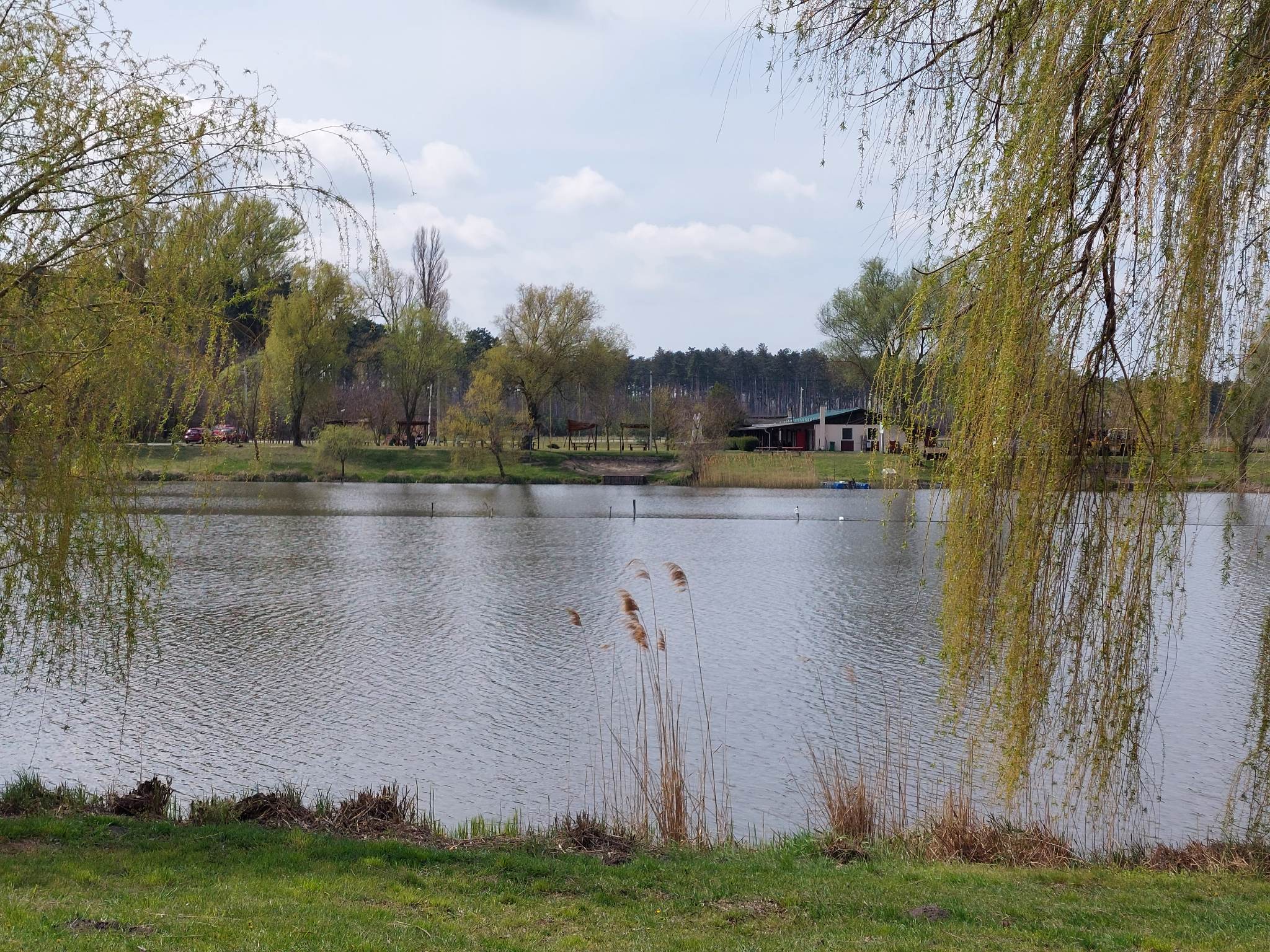
Photo: V4NA
The reason was that area has been occupied by migrants, as reported by both the local press and residents. They say that the migrants usually arrive in taxis to the edge of the forest to try their luck at crossing the border after sunset.
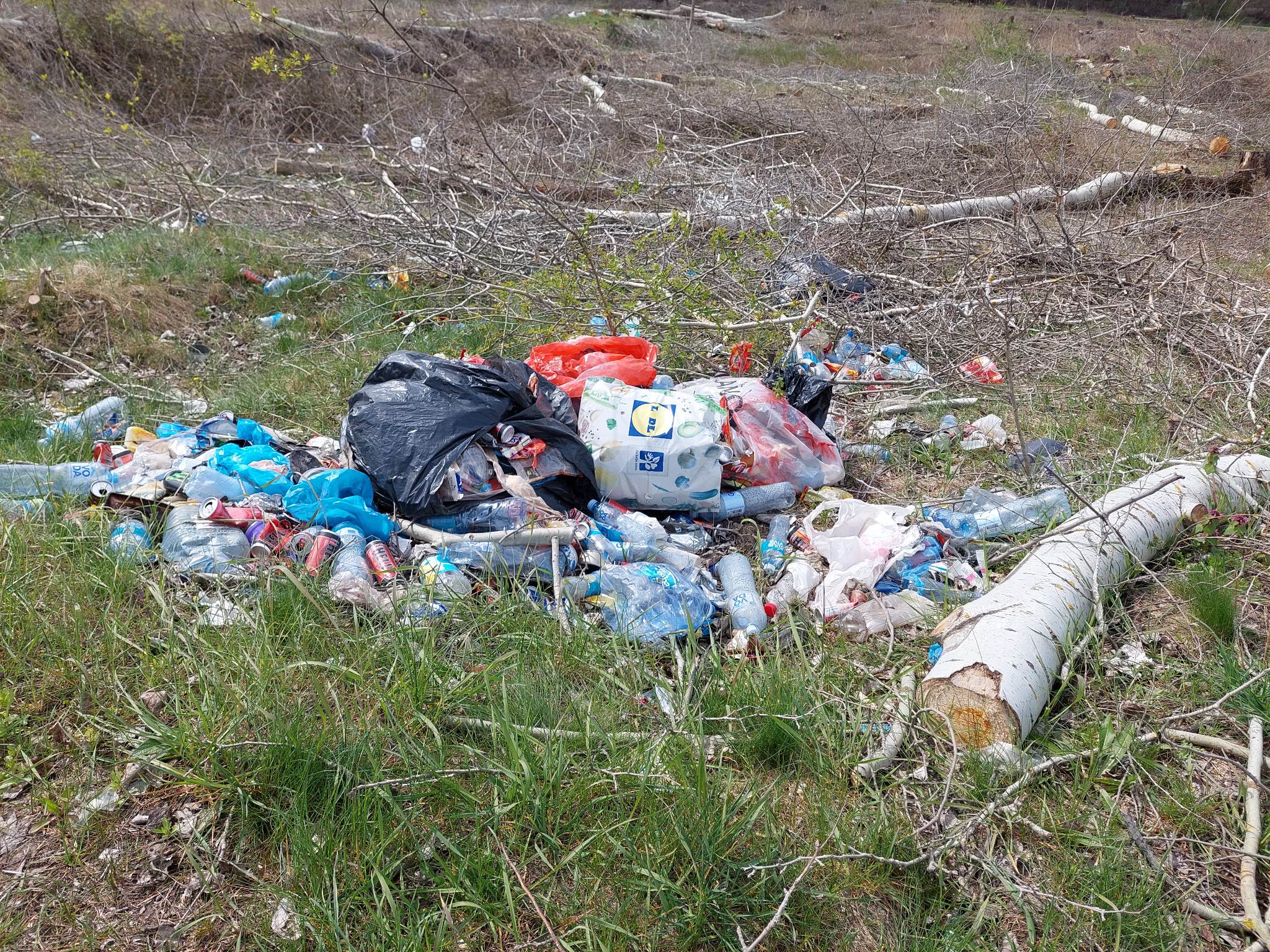
Photo: V4NA
V4NA‘s correspondent visited the site, and was shocked to see what the migrants had left behind.
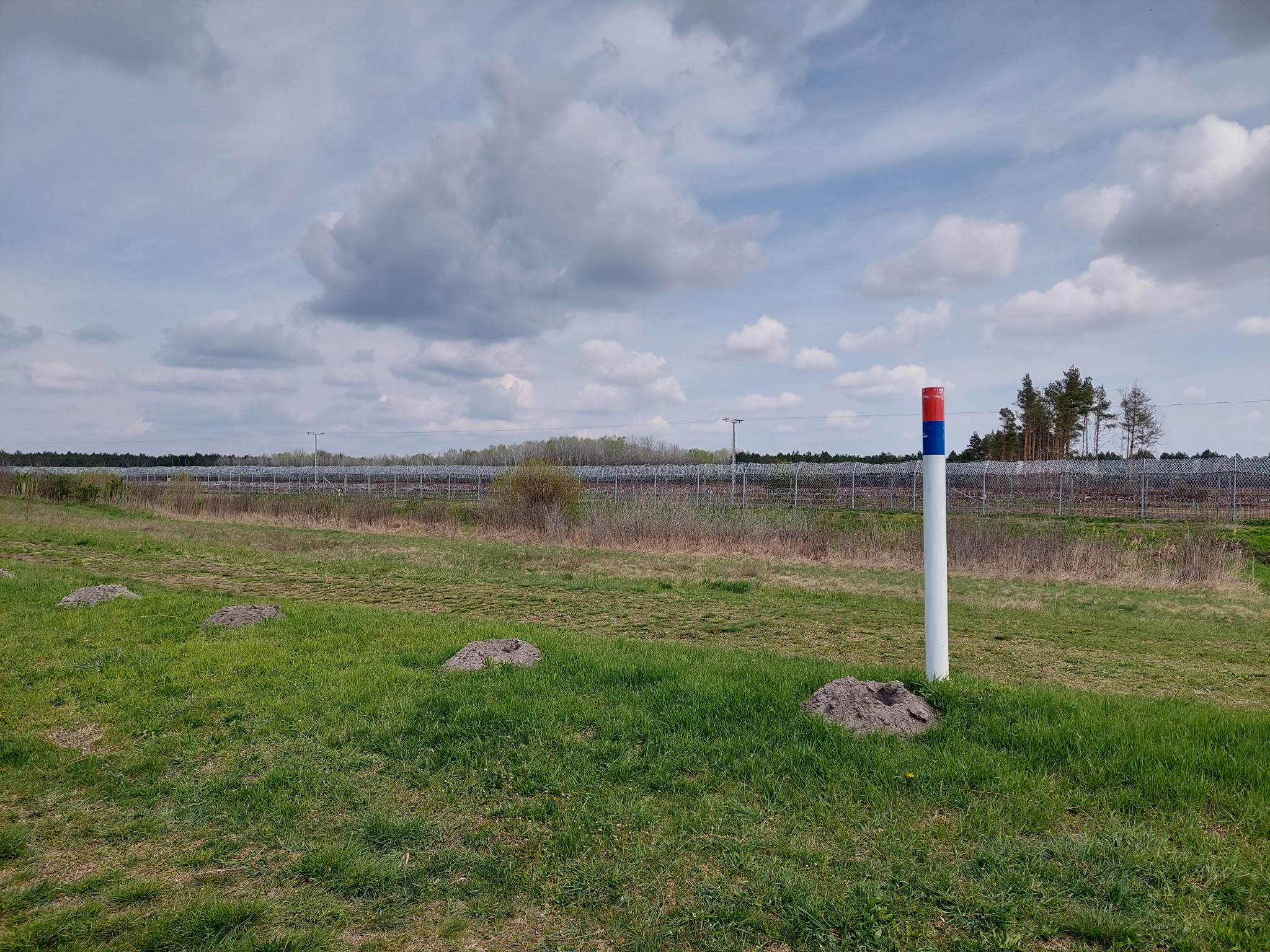
Photo: V4NA
It would be hard to tell whether there are more trees or empty cans of energy drink in this part of the forest.
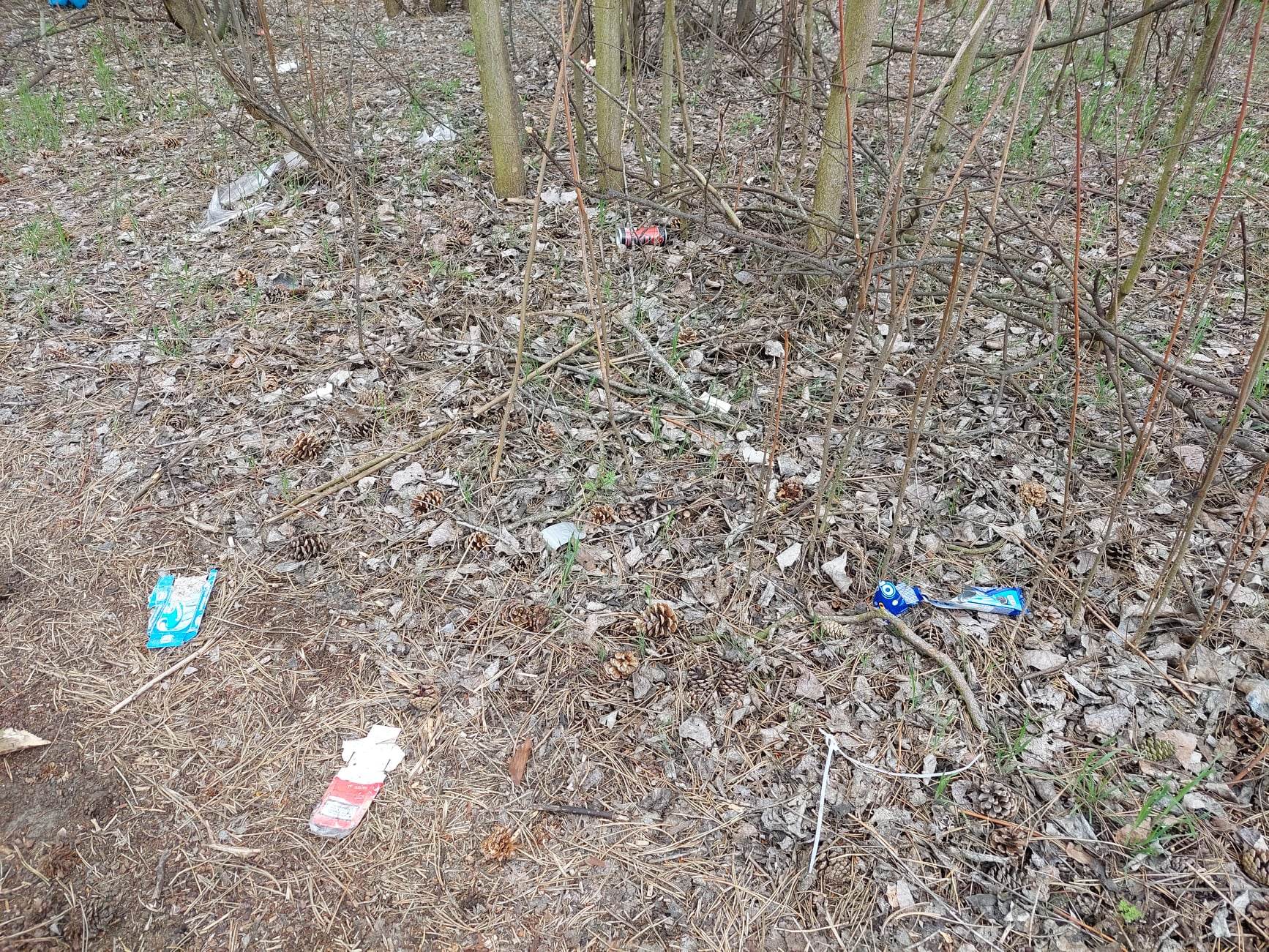
Photo: V4NA
Migrants like to consume these stimulating beverages, especially if they are preparing for an action at night. After drinking them, they leave the empty cans in the forest, just like cans of tuna, which they characteristically also like.
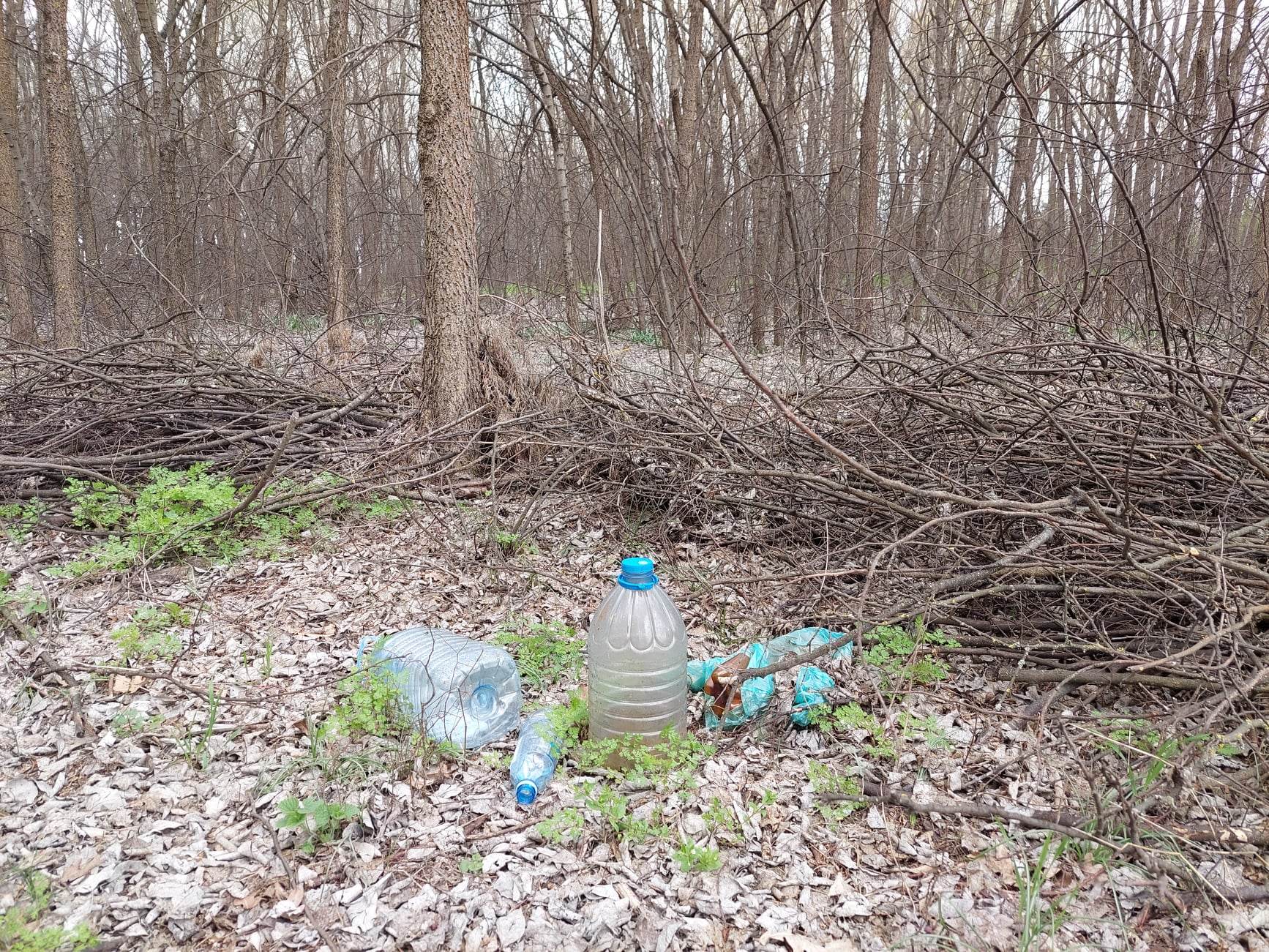
Photo: V4NA
There are also a lot of empty water bottles lying around, along with sleeping bags, blankets and clothes.
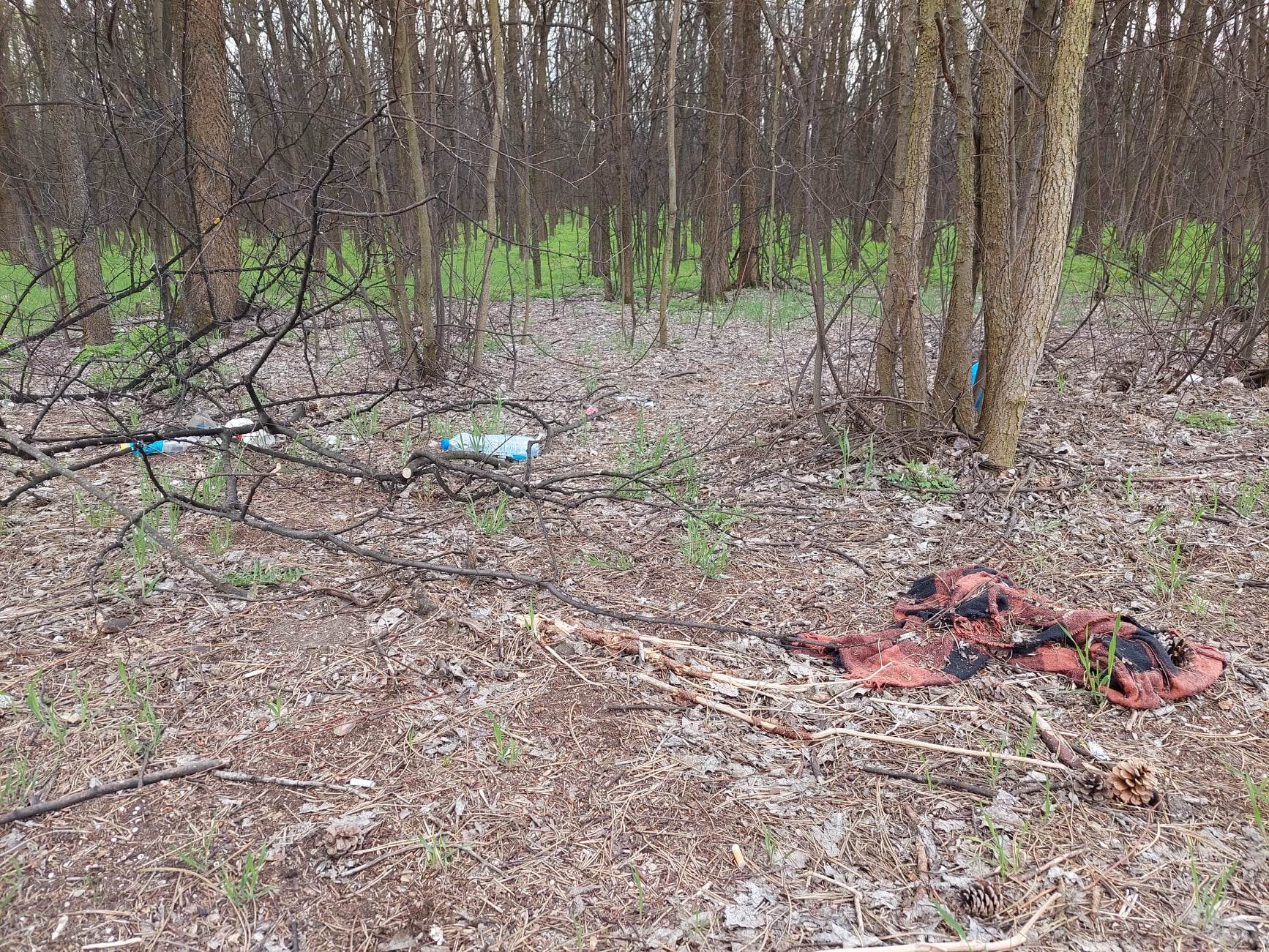
Photo: V4NA
In one of the clearings, the correspondent also found several sets of female clothes, including undergarments, panties and bras.
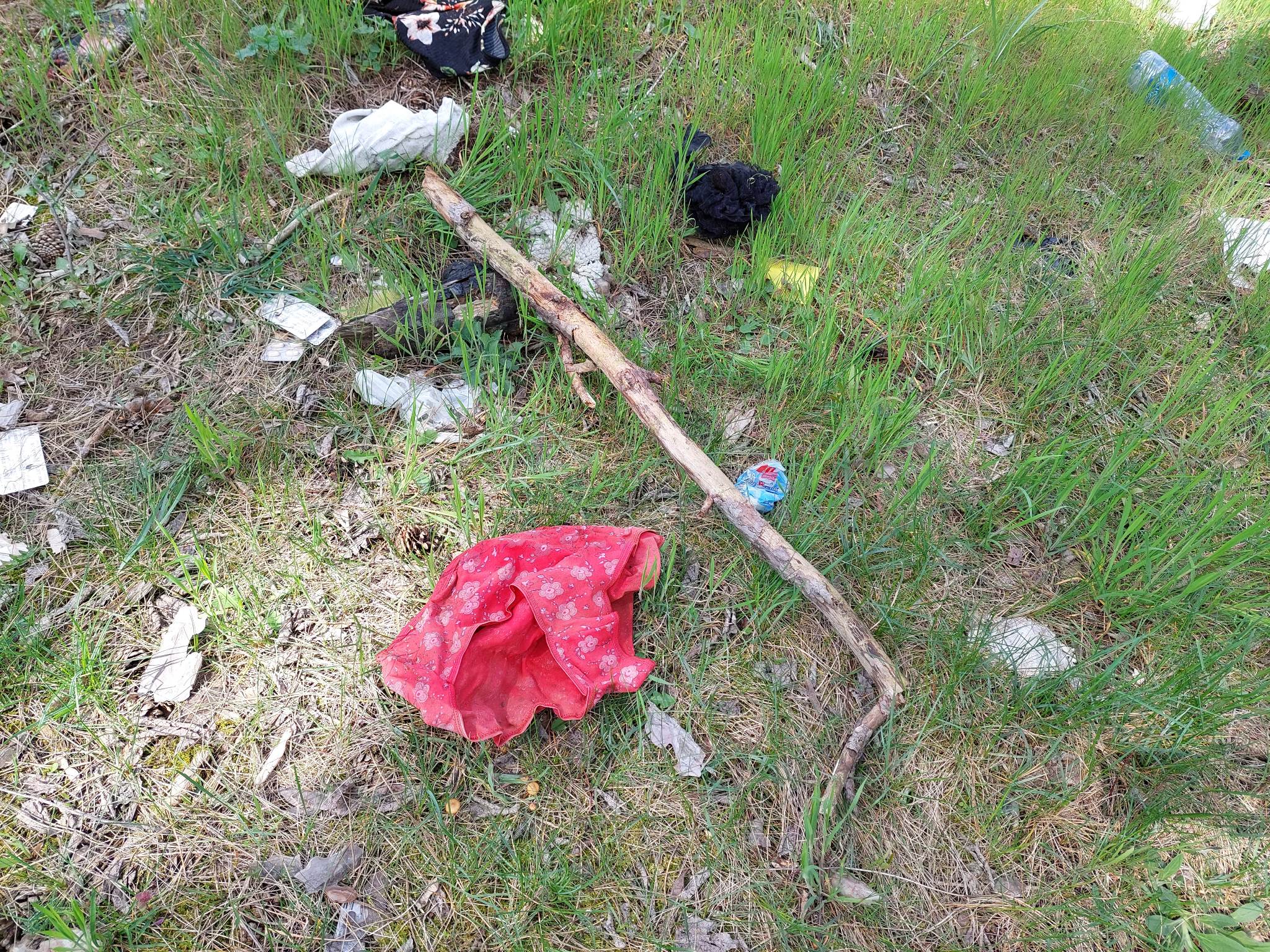
Photo: V4NA
Other clothes found in the forest included jeans, gloves left over from winter and shoes.
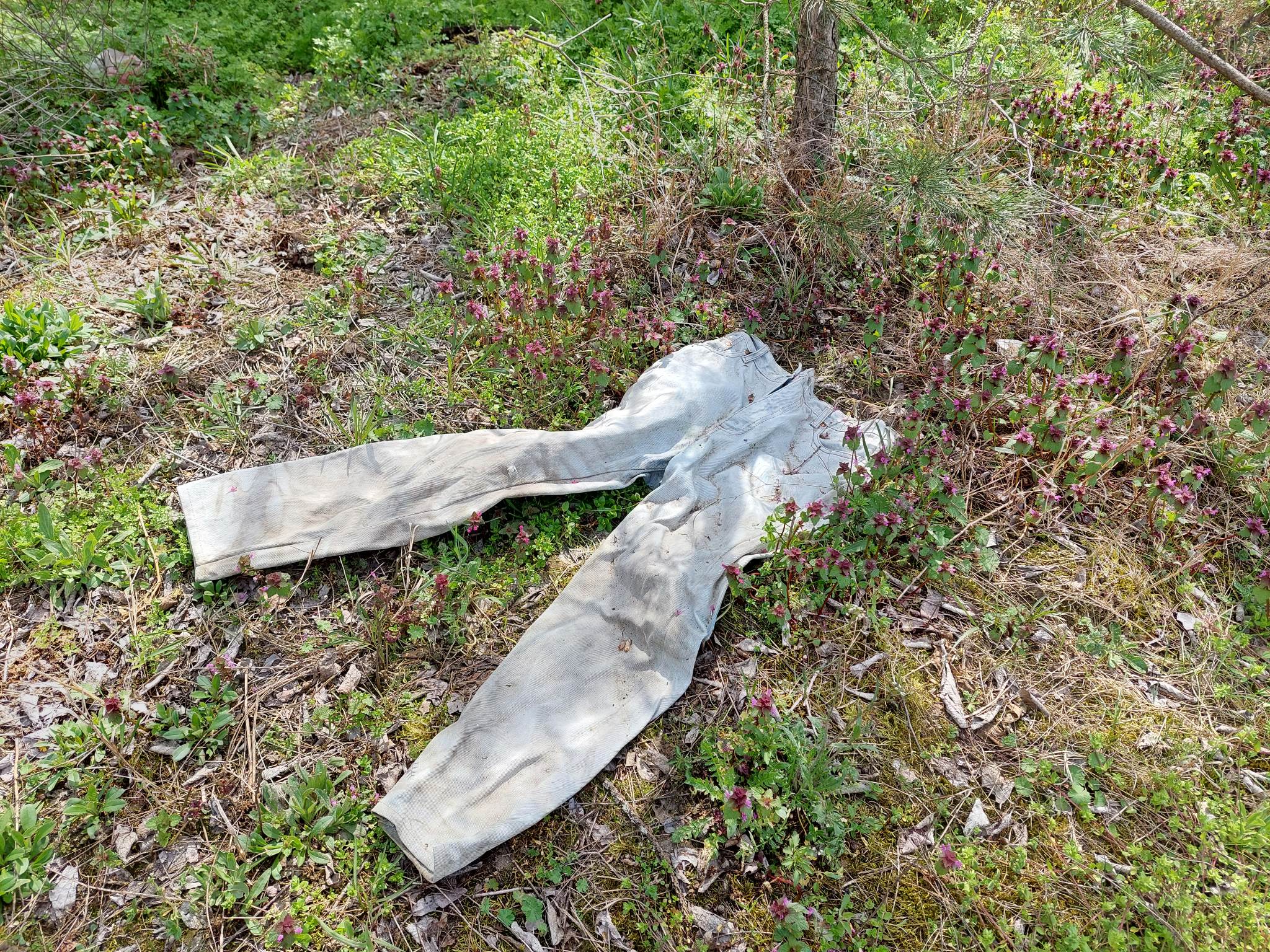
Photo: V4NA
The migrants were not ashamed of defecating in the forest, as it was visible from the signs.
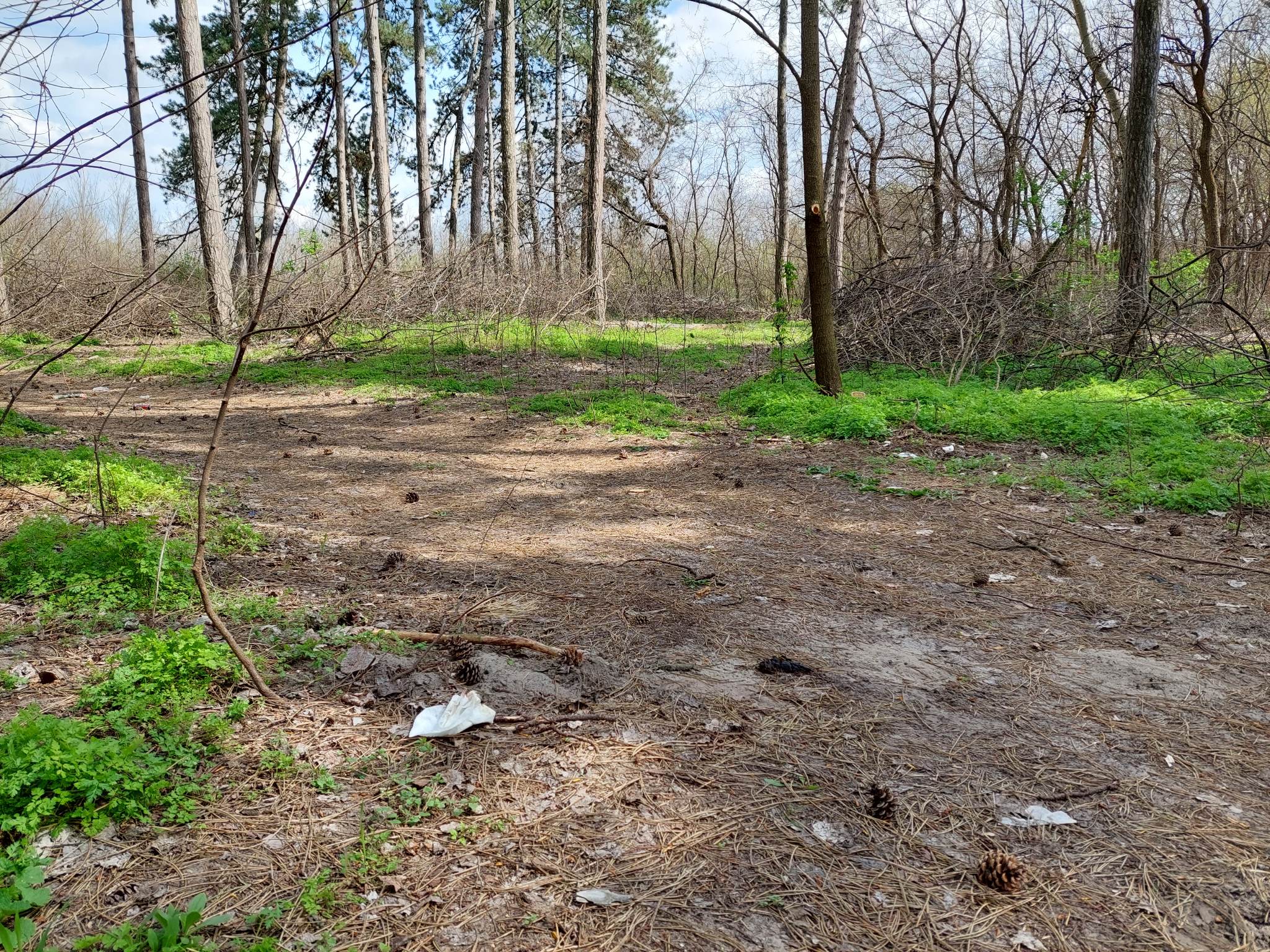
Photo: V4NA
More serious and dangerous than the environmental damage, however, is the number of prescription drugs found in the former migrant camps.
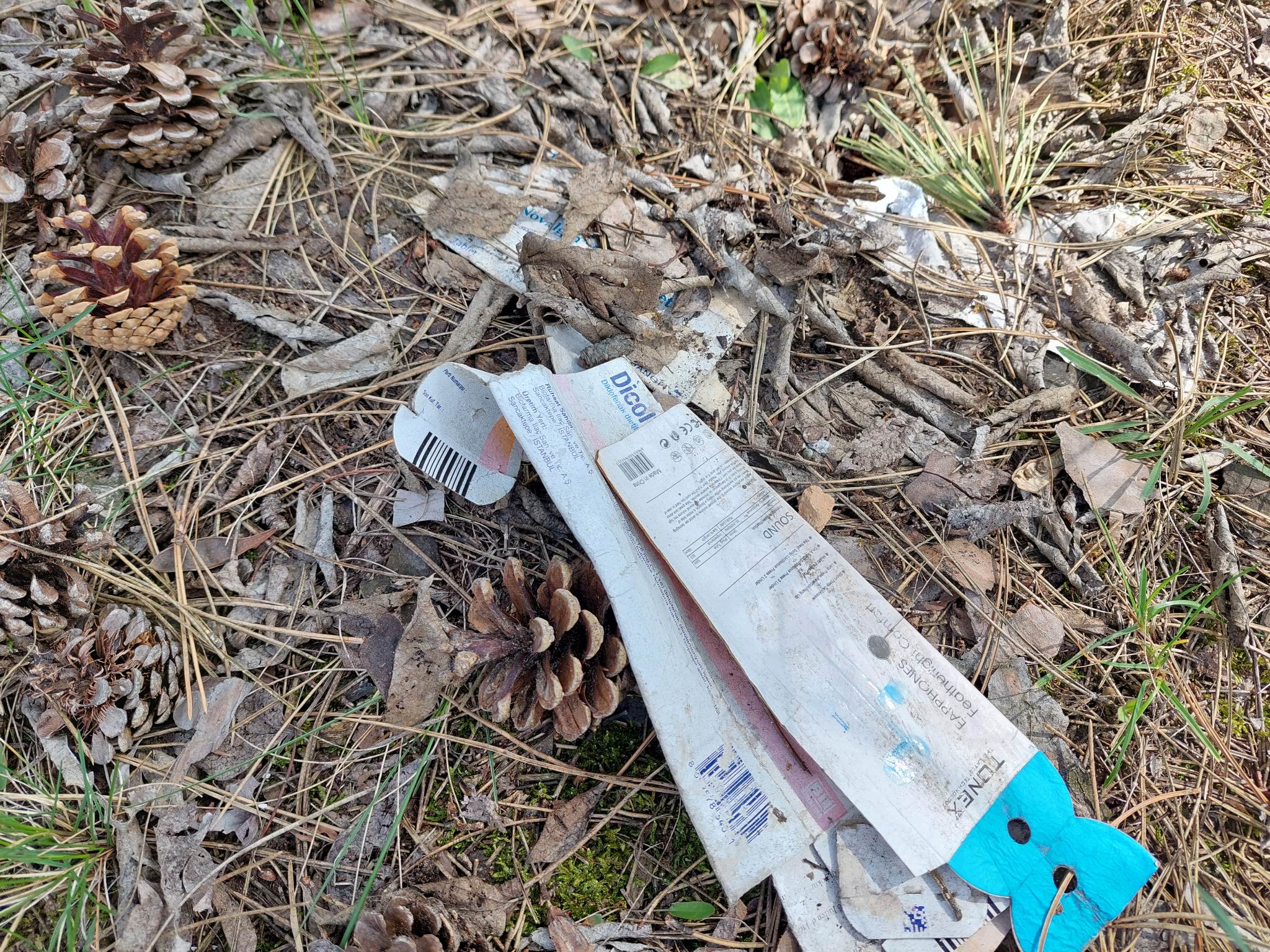
Photo: V4NA
Besides painkillers, we found several boxes of the medicine Keppra.
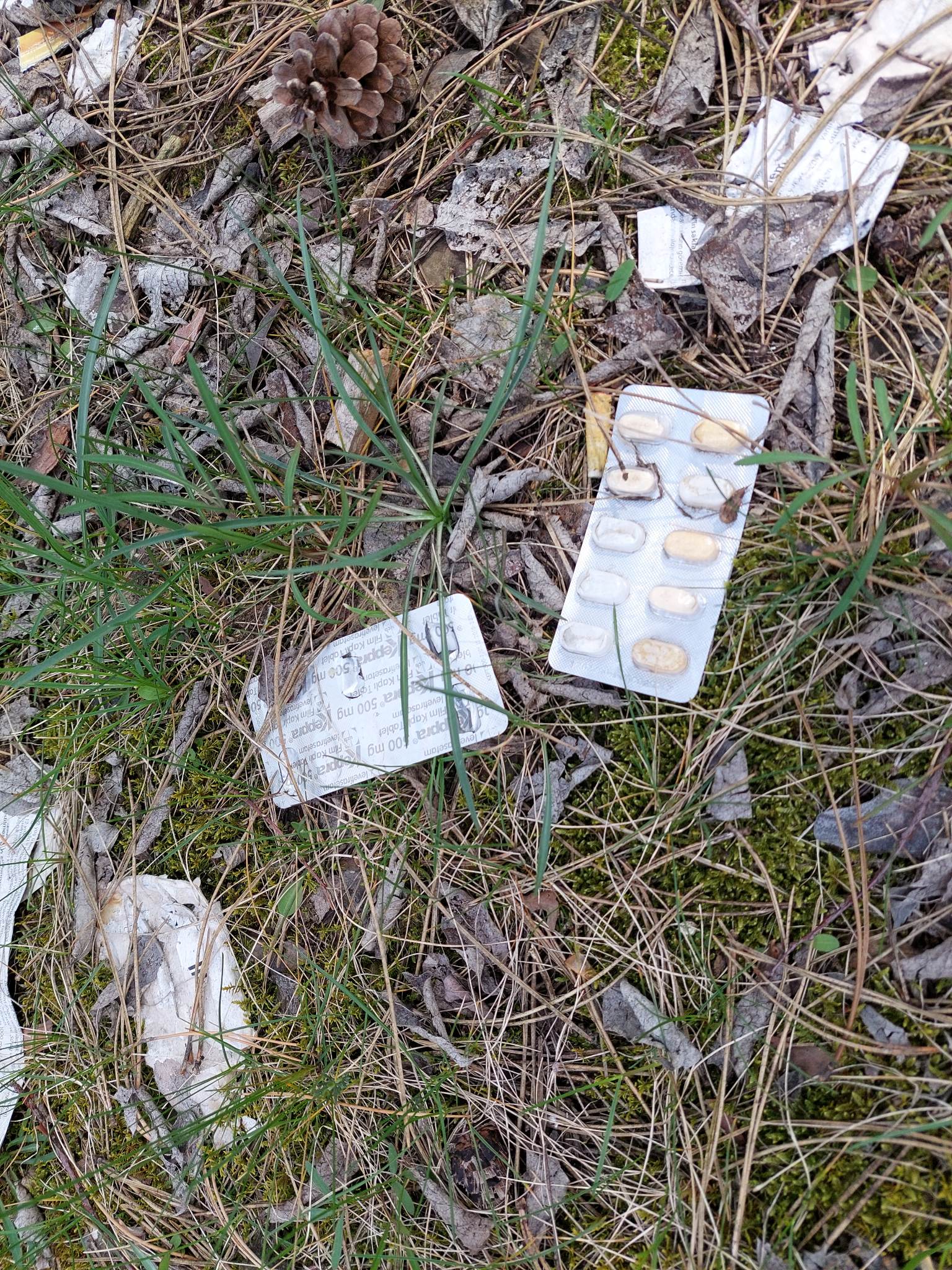
Photo: V4NA
These are used for the treatment of epileptic seizures, and can only be prescribed by a physician.
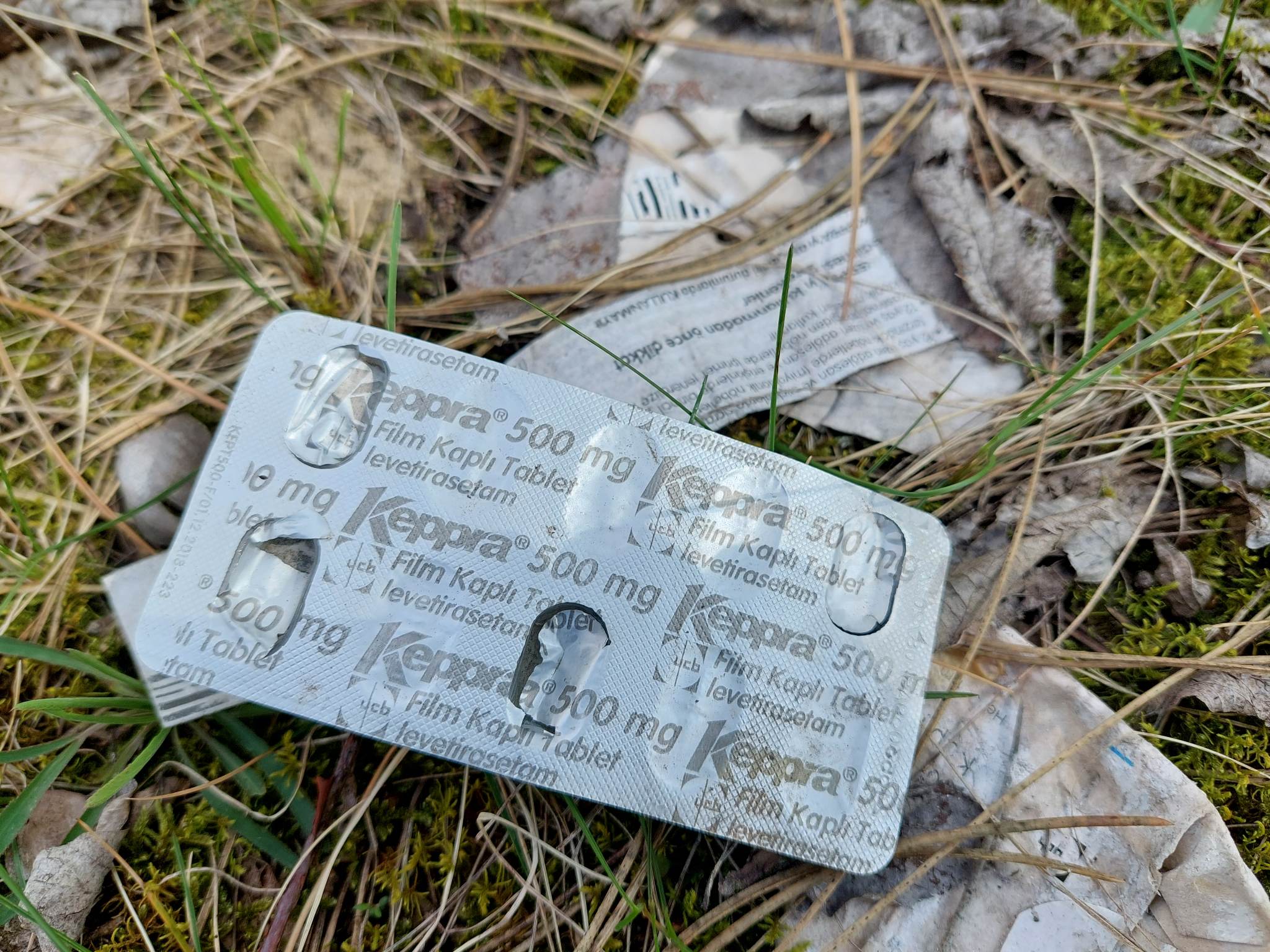
Photo: V4NA
We also found some user’s guides to ladders in the forest. While it may seem strange why a ladder has a user’s guide, it turned out from the description and the diagrams that the migrants tried to cross the Hungarian border fence with other than ordinary ladders. The description that we found belonged to a ladder produced by Cagsan Technics, a Turkish company, and listed the instructions in English, Turkish and German. These ladders are heavy-duty, can be adjusted to several angles and can even be adjusted for use as a small bridging device (for example to climb over a fence). The company’s ladders are also available in Serbia.
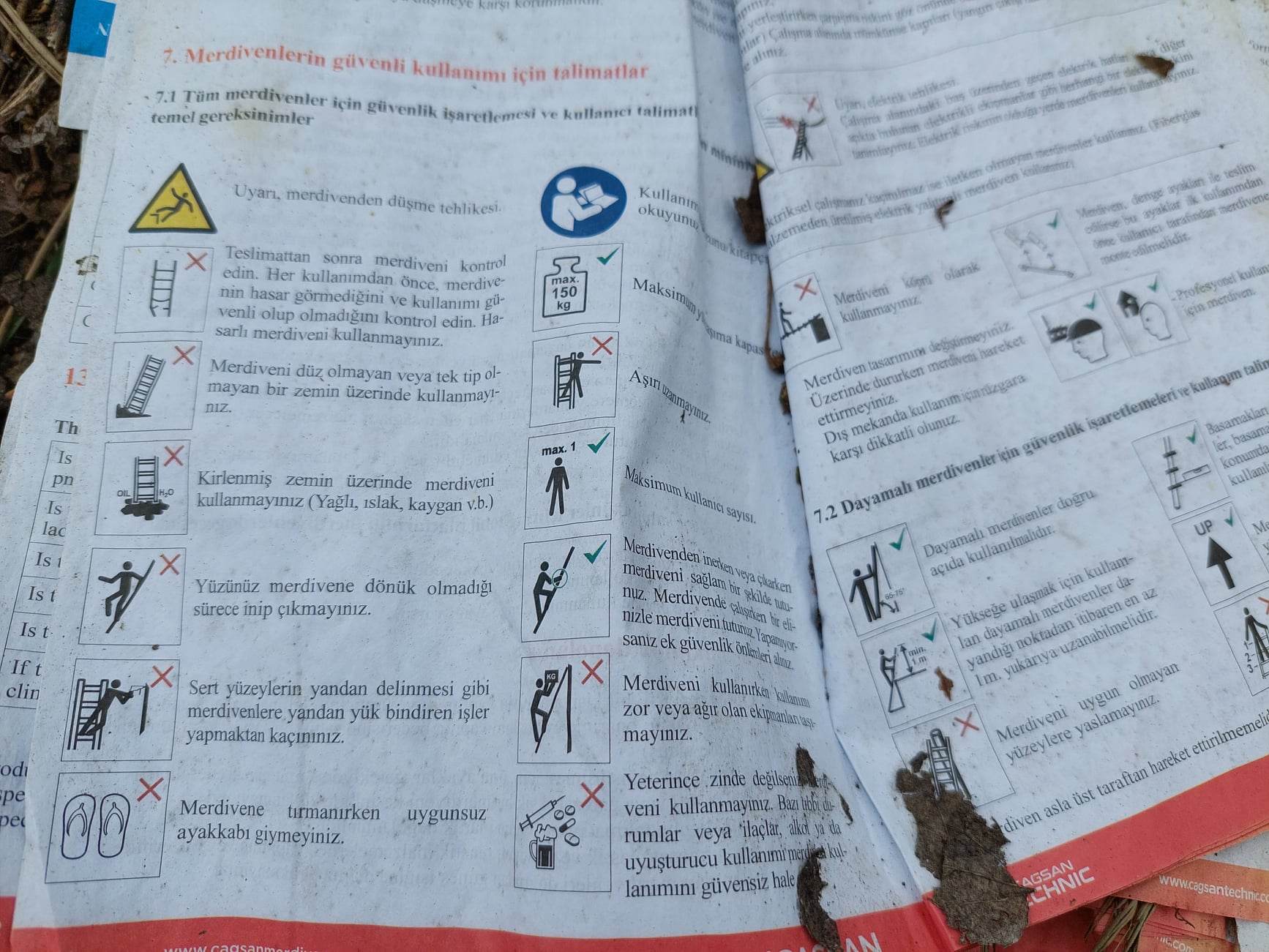
Photo: V4NA
We also found some makeshift observation points. These are located barely 10-15 metres from the border fence, and consist of the remains of a thatched roof now serving as cover, behind which the migrants put a blanket or a tarp in a bid to hide behind while waiting for an opportune time to attempt getting across the fence.
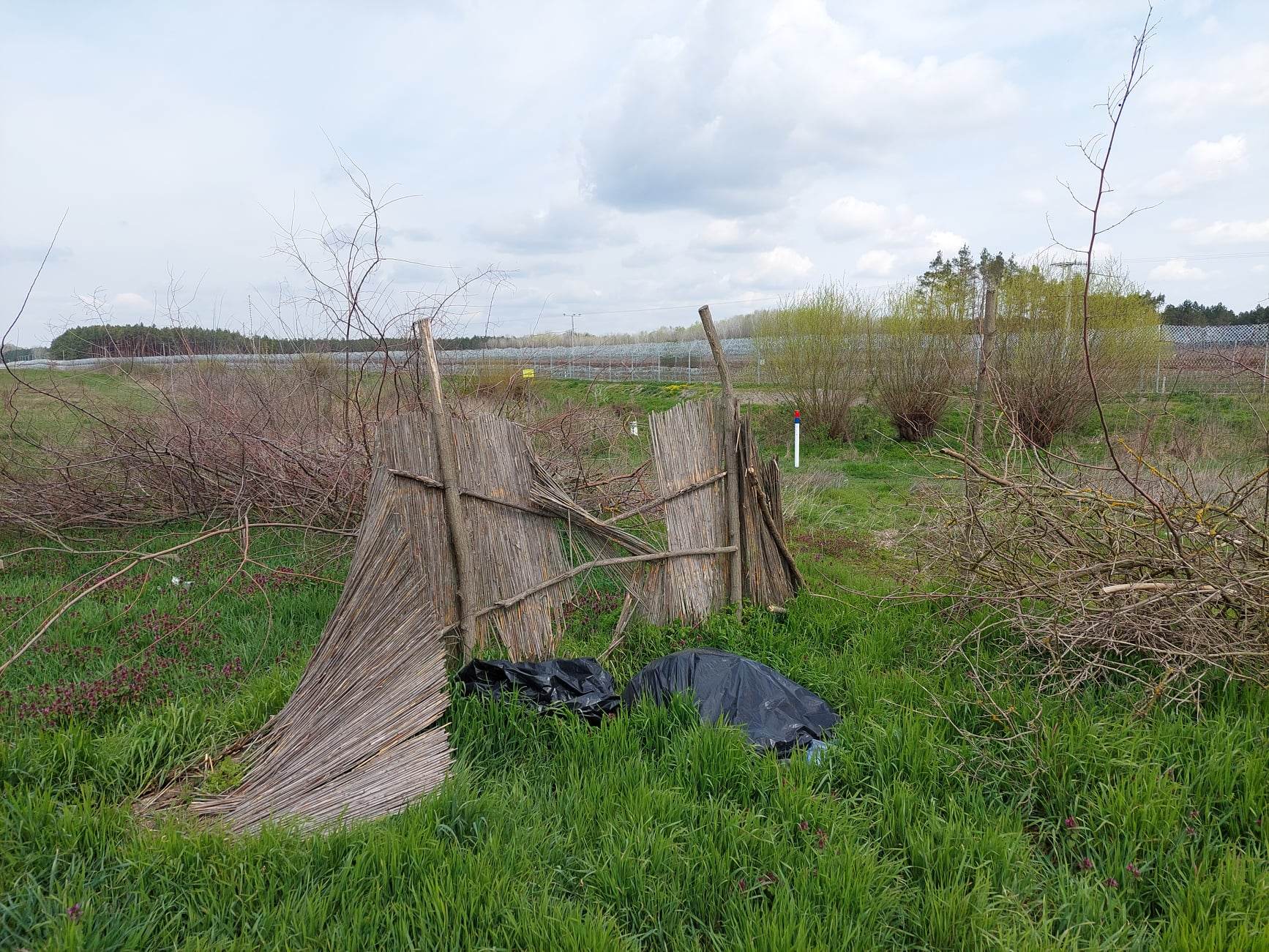
Photo: V4NA
It is clear that the discarded items belonged to migrants.
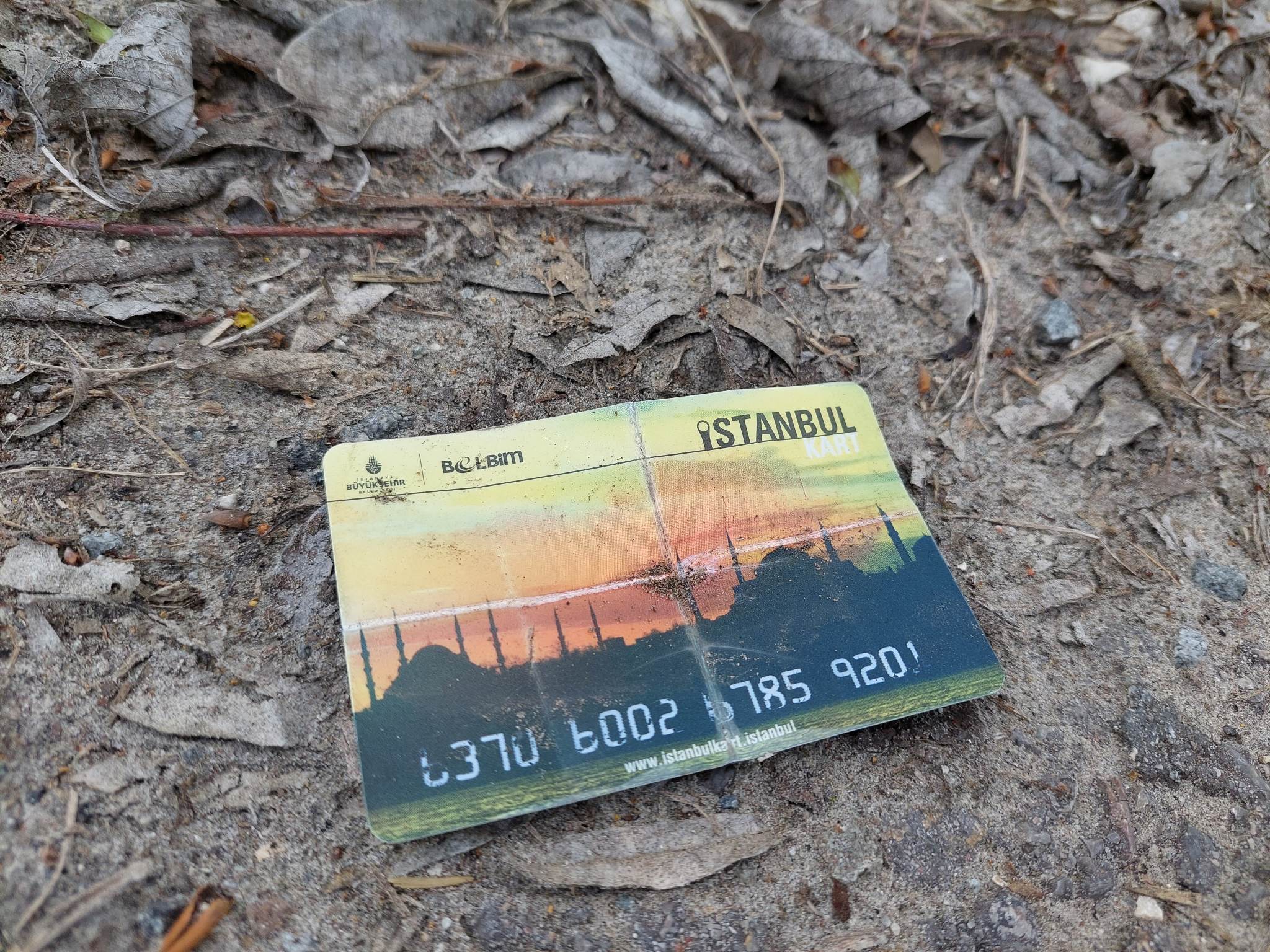
Photo: V4NA
On the one hand, it is a rather unrealistic for local hikers to leave behind discarded underwear, ladder manuals, sleeping bags or several blister packs of epilepsy medication.
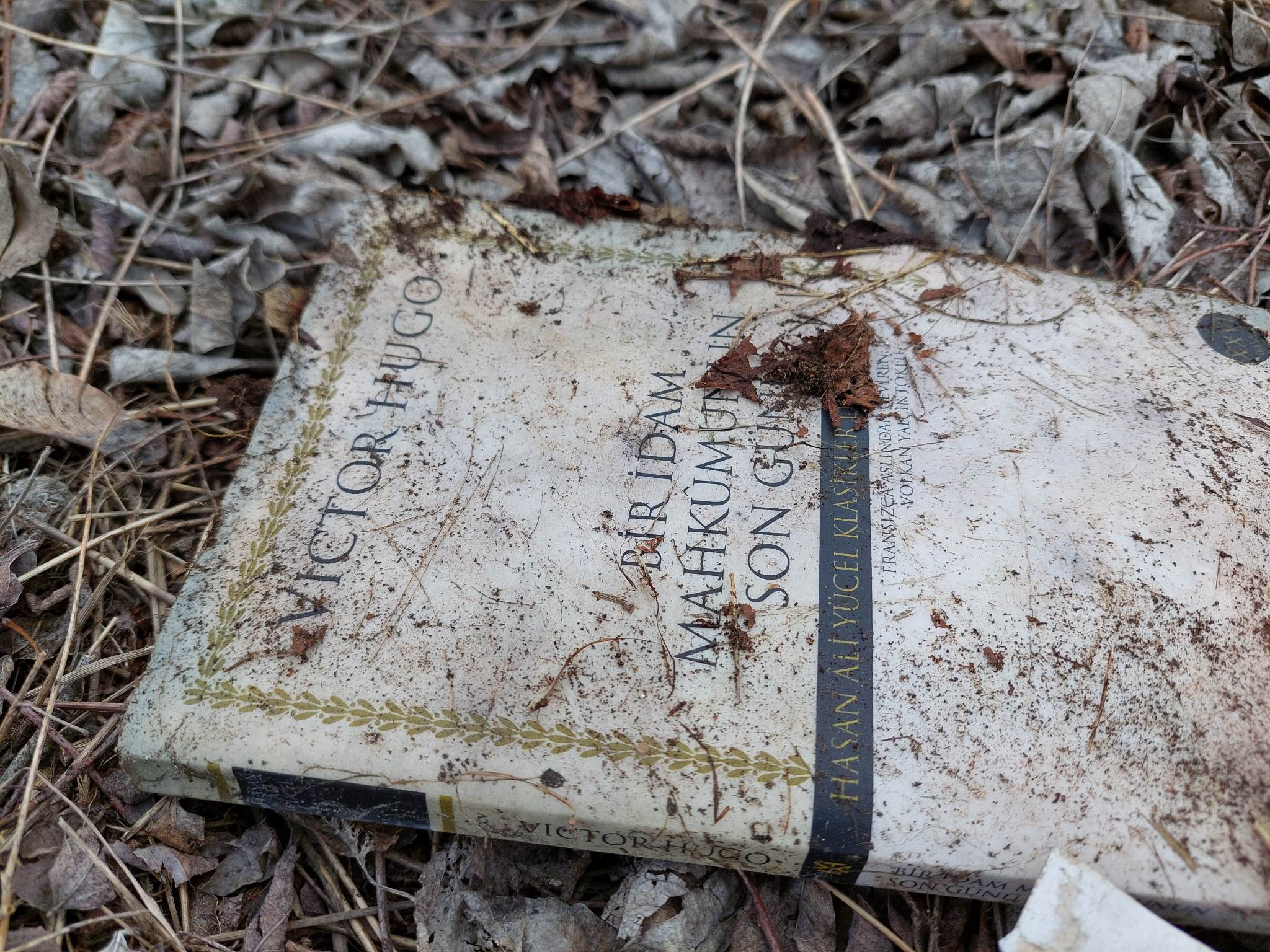
Photo: V4NA
Other discarded items included Turkish-language novels, a public transport card valid in Istanbul and a temporary ID card issued by a Serbian reception centre.
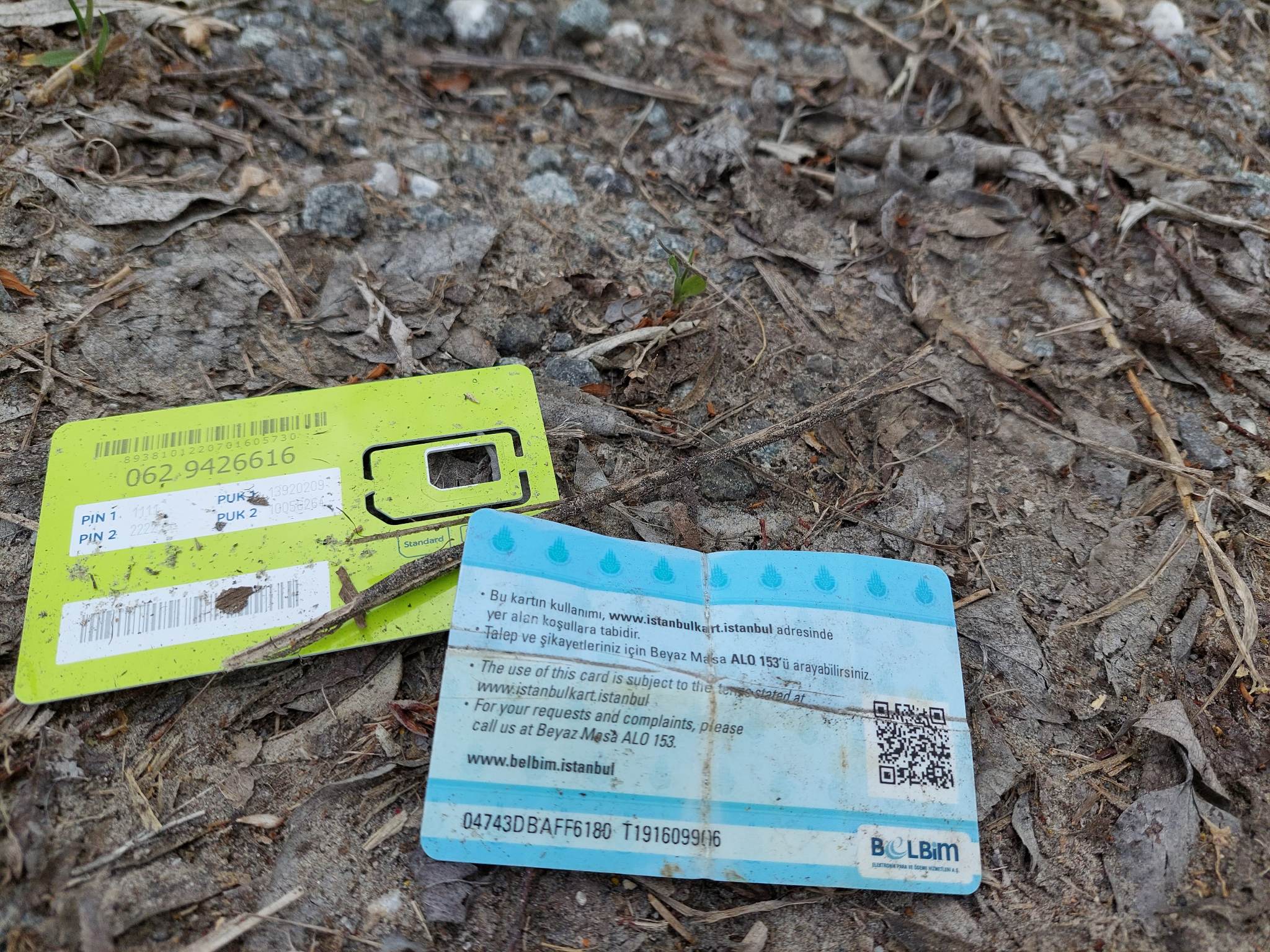
Photo: V4NA
The latter bears the name Bilel Lemles, who was born in Algeria in 1999.
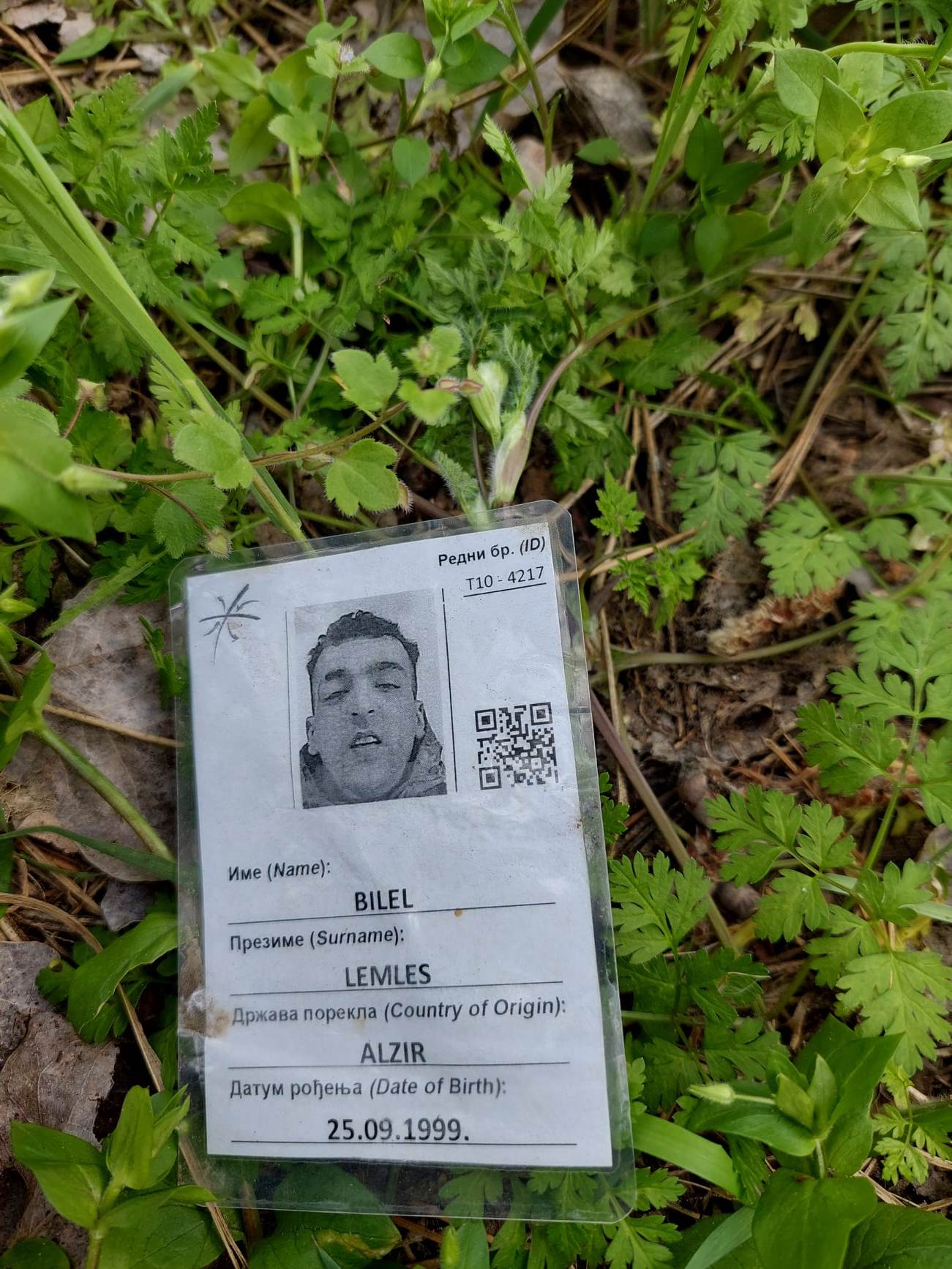
Photo: V4NA
The document was issued by Serbia’s Commissariat for Refugees and Migration at the reception centre in Pirot situated near the border with Bulgaria. Bilel Lemles, if that is his real name, preferred to dispose of the document at the edge of the forest before setting out to scale the fence.
We found a number of prepaid mobile phone cards from Serbia and dialled the numbers but in vain, they were no longer active. Broken phones and mobile parts were also left behind.
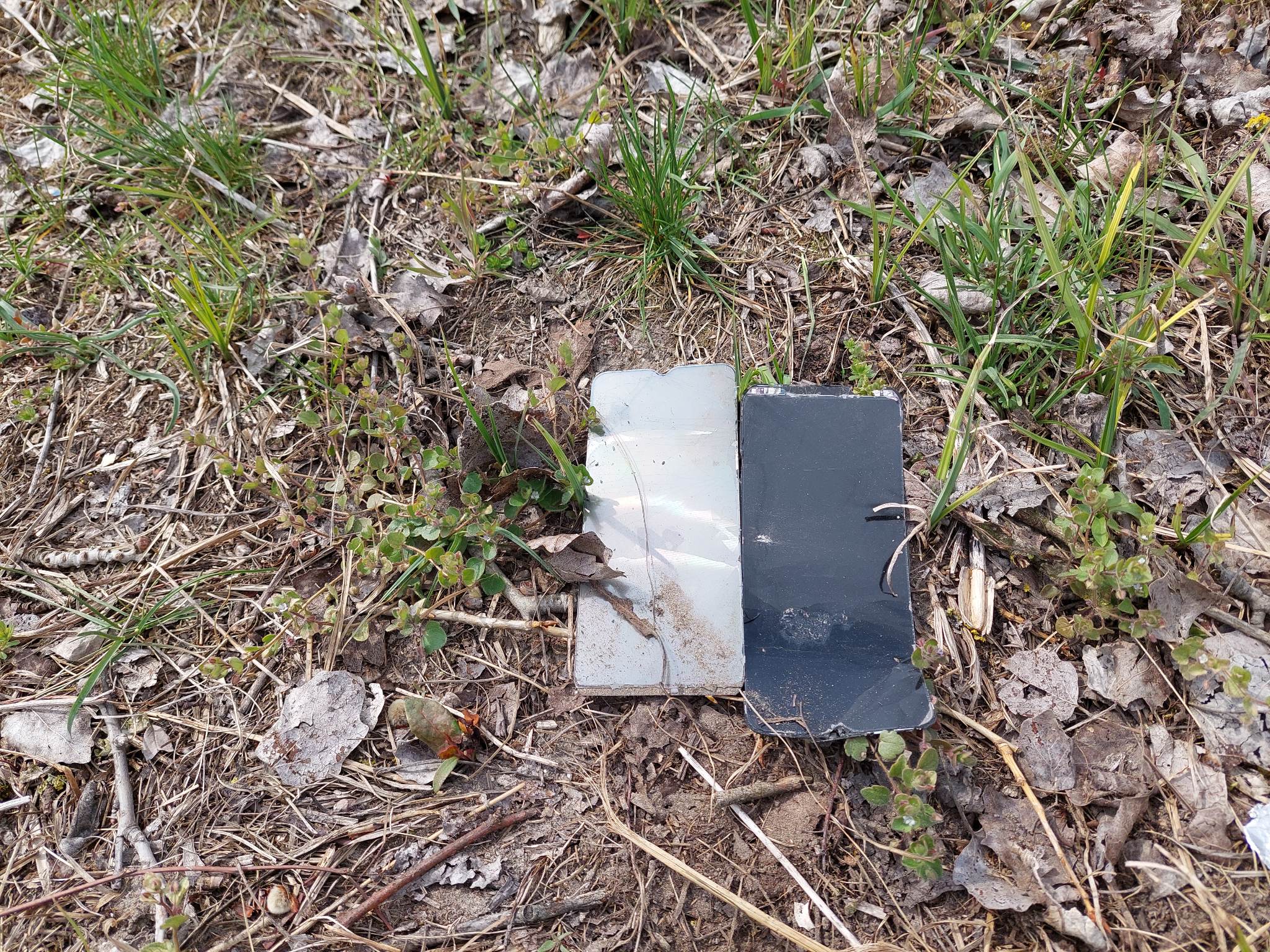
Photo: V4NA
There are no residential buildings in the area, only weekend houses and small sheds on the nearby orchards. They all looked empty and abandoned when we were there. However, local people live in the buildings closer to the city, on the lower section of the road leading to the forest.
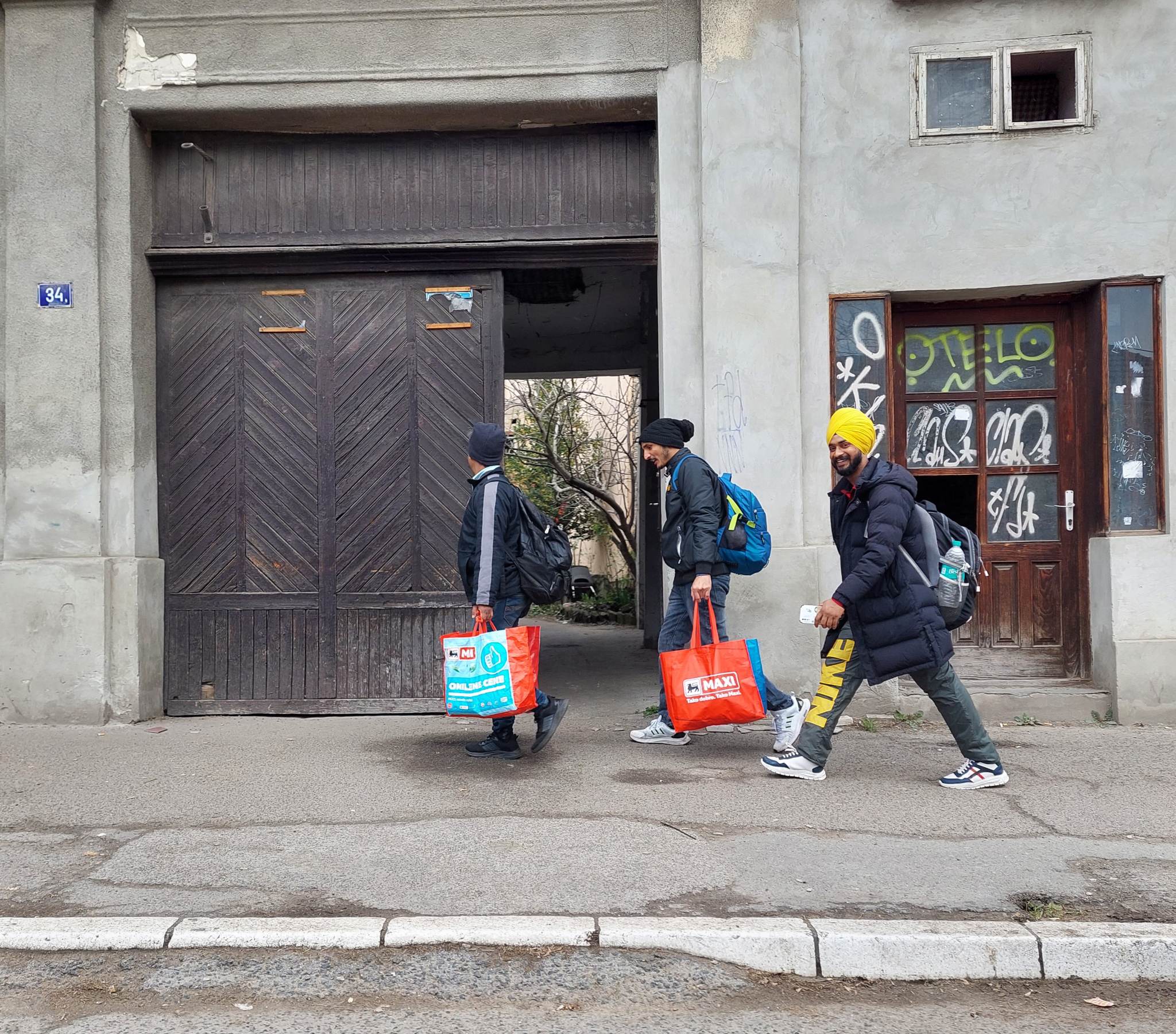
Photo: V4NA
These residents have been living in fear for years. They say they regularly see gangs of migrants in the area. Migrants who used to come on foot now prefer to arrive in taxis, typically in the evening. While they are waiting to be taken to the forest, they usually go about their own business in central Subotica, shopping, getting a mobile, and withdrawing cash. Then, in the morning, they often reappear in the city, because after a failed attempt, they need to replenish their stocks.
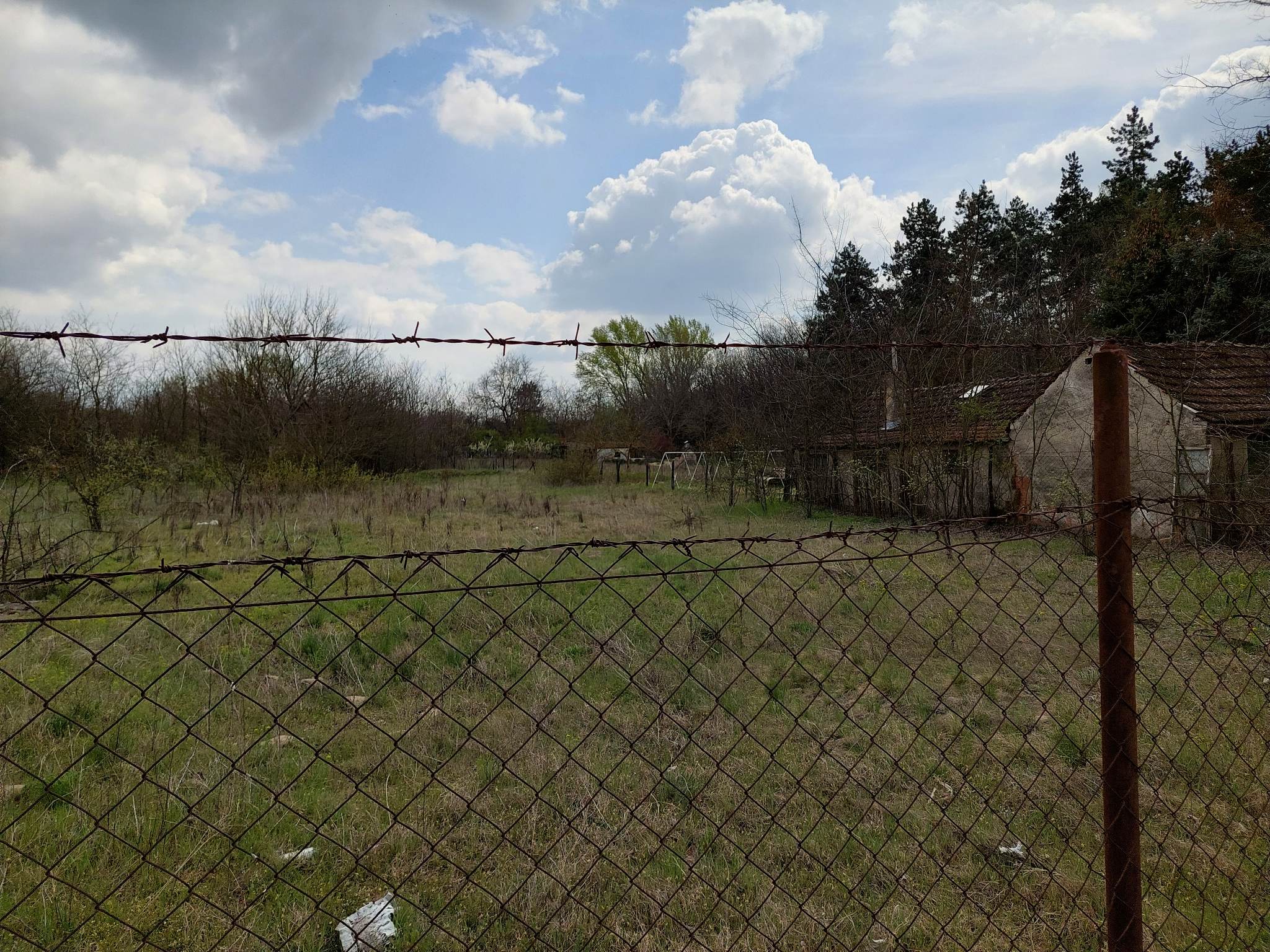
Photo: V4NA
A woman living near the Hungarian border told V4NA that she used to go to the lake and the nearby pine forest, and she would often camp there as a child, but now migrants and people smugglers have taken control of the forest.
„I’m afraid to enter the forest even in daylight, and I definitely avoid it after dark. Not long ago, we put up our tents there under the open sky, we had nothing to fear. It’s sad that the forest has changed like this. People from Subotica enjoy taking walks in nature. Even now, some people are not afraid to go hiking, but I’d rather not risk it,” said the woman from Subotica.
Serbian police arrest Ukrainian human smuggler
Illegal immigrants and people smugglers keep the Serb police rather busy. Nearly every day, the interior minister releases information about migrants having been located in various parts of the country and their helpers having been arrested. However, these efforts have so far only resulted in a decline in the number of immigrants seen in the cities, migrants continue to make regular crossing attempts along the border.
Some foreign nationals also see lucrative business opportunities along the Balkan route. In one recent case, for instance, a Ukrainian citizen was taken into custody after a road check when police officers found 22 immigrants hiding in the truck the 41-year-old man was driving. The truck with Italian licence plates was carrying migrants from Morocco. Although the illegal immigrants were transferred to reception centres, they soon vanished from there to continue their journey to the EU as these facilities have an open-door policy and occupants are free to come and go.
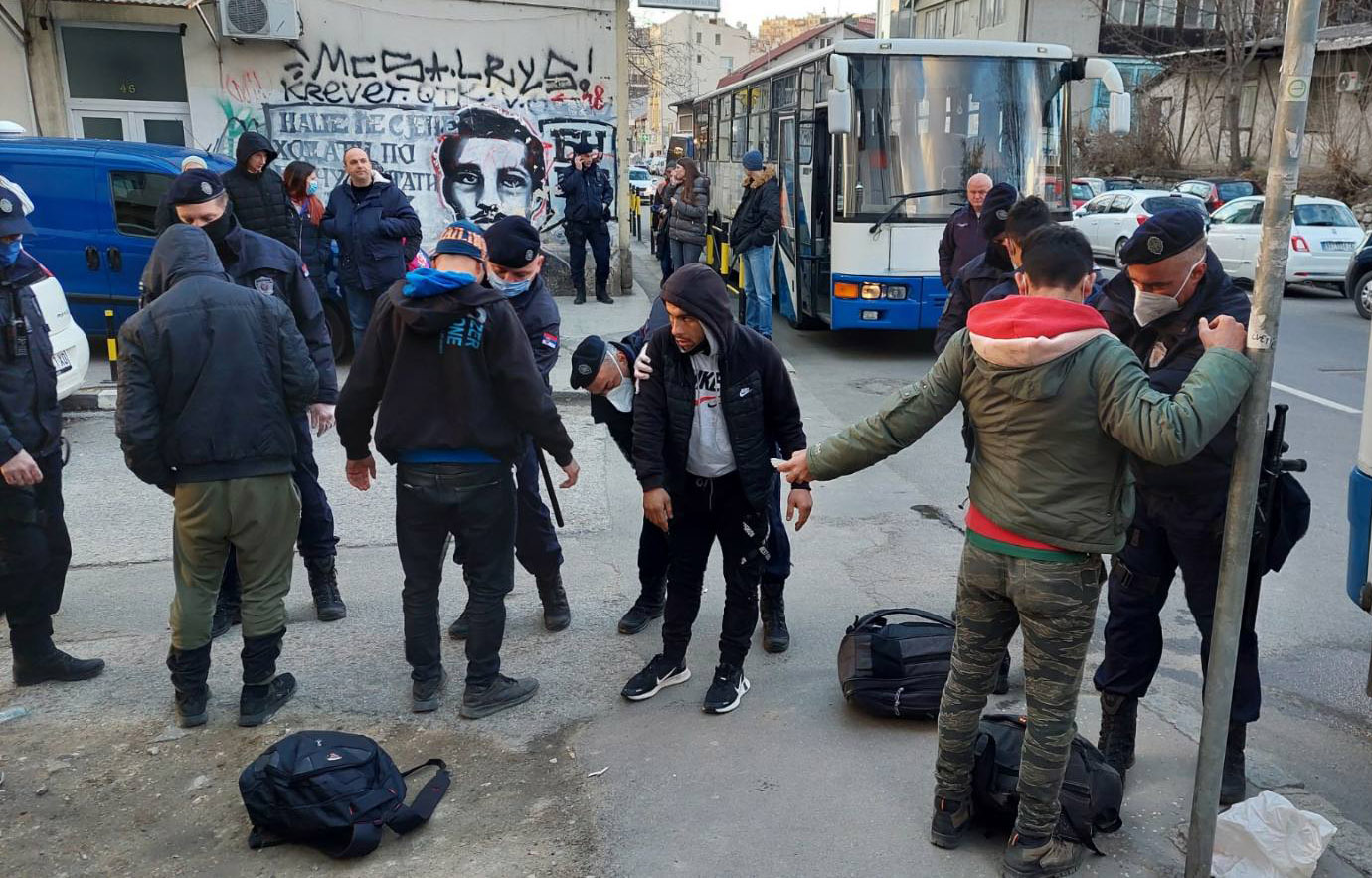
Photo: Serbia’s police force
Just the other day, under the influence of psychoactive drugs and alcohol, a man driving a truck crashed into the barrier on the motorway near Jagodina in central Serbia. JN, born in 1985, was transporting 47 illegal migrants in the truck heading towards the northern part of the country. 23 of the migrants suffered minor injuries in the accident. Police have taken the truck driver into 48-hour custody on suspicion of human trafficking and illegal border crossing. As it turned out later, the driver did not have a driving licence.
Human traffickers and police officers are also active in the northern part of Serbia. Picking up migrants in the forests along the Hungary-Serbia border and in nearby settlements has become daily practice, yet immigrants keep trying.

